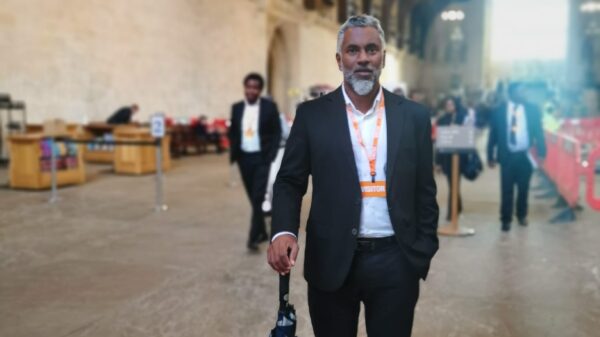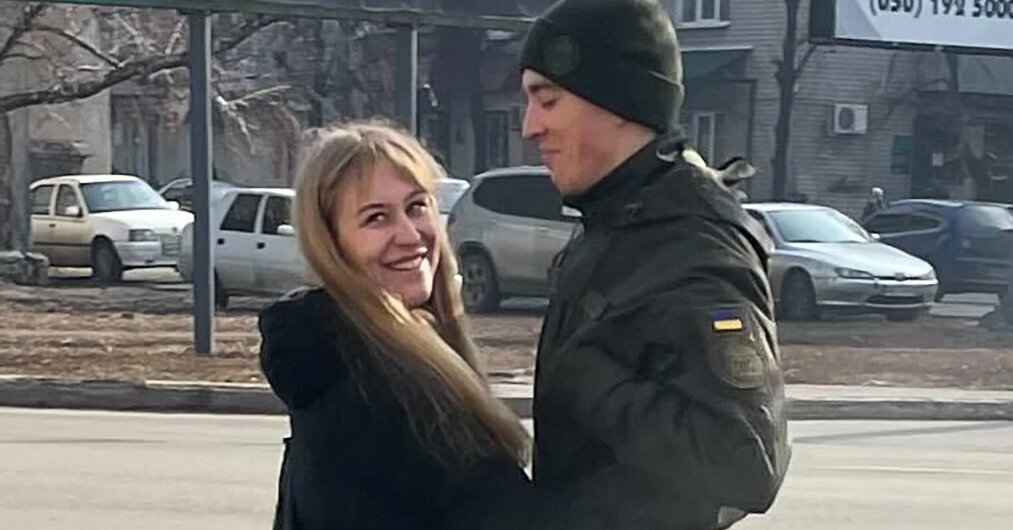Residents of the country’s Donetsk region, accustomed to conflict and violence, are desperate after Russia launched military attacks.
SLOVYANSK, Ukraine — The explosions began before dawn. Loud booms of artillery in the distance, shaking a region that knows conflict and death all too well. Then came an eerie silence, pierced by the crowing of roosters, as people blinkingly stepped out of their homes into the morning light.
Then came the outrage, and the panic.
In this small town in eastern Ukraine’s Donetsk region, not too far from where heavy fighting was underway on Thursday morning, people were making runs on the banks, runs on the gas stations, and some people were just running, trying to get west.
“It’s panic, don’t you see?” said Yevheni Balai, pointing to the line of anxious Ukrainians standing outside a closed bank, desperate to take out cash. “They’ve gotten exactly what they wanted, the ones on the other side — panic and destabilization.”
For years, war between the Ukrainian military and Russia-backed separatists has been a persistent conflict to which the rest of the world scarcely paid attention. To a degree, rushing to get money and food after explosions has become part of the rhythm of daily life.
But this was different. Now Russia was invading.
As Ukrainian officials surveyed the country, with Russian attacks having been launched against cities, residents in Kyiv, the capital, were waiting in line for up to an hour to buy fuel for their cars. The city’s main airport was bombed and its major roads were jammed with traffic as people tried to flee.
Ukraine’s defense minister, Oleksiy Reznikov, called on anyone looking to take up arms against Russian forces to immediately join the country’s territorial defense units. All anyone needed to sign up was a Ukrainian passport, he said.
“The enemy is attacking, but our army is indestructible,” he said. “Ukraine is moving into all-out defense mode.”
At a base in Slovyansk for Ukraine’s National Guard, troops in drab green uniforms scrambled in all directions. Wives and girlfriends had come to say goodbye to soldiers, even as the soldiers admitted that they did not quite know where they were being ordered to go.
“It’s not good, I’ll tell you,” said one of the guardsman, who only gave his first name, Yevheni. He said he had been fighting against Russian-backed separatists in the breakaway enclaves of eastern Ukraine since the war broke out in 2014. His wife, Yelena, came to deliver clothes for him.
“They told us to not come to work. All the kindergartens are closed. But right now, everything is quiet,” she said. “They said they are preparing for evacuation.”
Outside a blood bank in Slovyansk, Bohdan Kravchenko was sitting in his car after making a donation, listening to the Ukrainian national anthem on high volume.
“We’re doing what we can to support the country,” he said. “There is no panic. We just have to act according to the situation. Things have only just begun.”
Inside, the director of the blood bank, who gave only her first name, Katerina, was fuming.
“They’re treacherous,” she said of the Russians. “They call themselves our brothers. What kind of brothers! I’m indignant. How many years did we belong to the same so-called country? How could the Russians behave like this?”
She said people were coming in to donate blood, elderly pensioners and young people. Last week, soldiers came in as if in anticipation of what was to come.
“We’ve lived eight years of unending war,” she said. “There’s nowhere to run. All Ukraine is exploding.”
Not everyone was worried, though.
Lera Alekseeva stood in a courtyard, warming her hairless cat in the folds of a jacket. She said she was planning to report to work first thing Thursday morning at a company in town that sells and repairs cash registers. Though she said she had no intention of leaving, she was taking the cat and her poodle with her to work, just in case.
“They’re like children,” she said. “I can’t go anywhere without them. They’ll be with me.”
Slovyansk was the site of fierce fighting in 2014 when war broke out between Ukrainian forces and Russia-backed rebels. But while many expressed anger at Russia for bringing war into their lives, not everyone blamed Russia’s president, Vladimir V. Putin.
“It’s our scoundrels in Ukraine who listen to NATO and the Pentagon, which are pushing them into war,” said Lyubov Vasilyevna, 75, who would only give her first name and patronymic.
Her bag was filled with newly purchased loaves of bread as she waited in line to take cash from an A.T.M., though there appeared to be none left.
All she wanted, she said, was to live in peace in her native Donbas region. She paused and then recited a poem that she wrote two years ago:
I am so looking forward to peace
But it is coming to us so slowly. We still have а little patience.
Peace is close at hand
And we are waiting for it to arrive
Without gunfire, without blood.
Enough has been spilled in Donbas.
Let the sun smile and the sky brighten
And the children smile.
Let it go in a black moment.
There will be peace for all
And people will say God heard us.
Let all stormy skies leave us,
And hail Donbas and the city of Slovyansk.


























